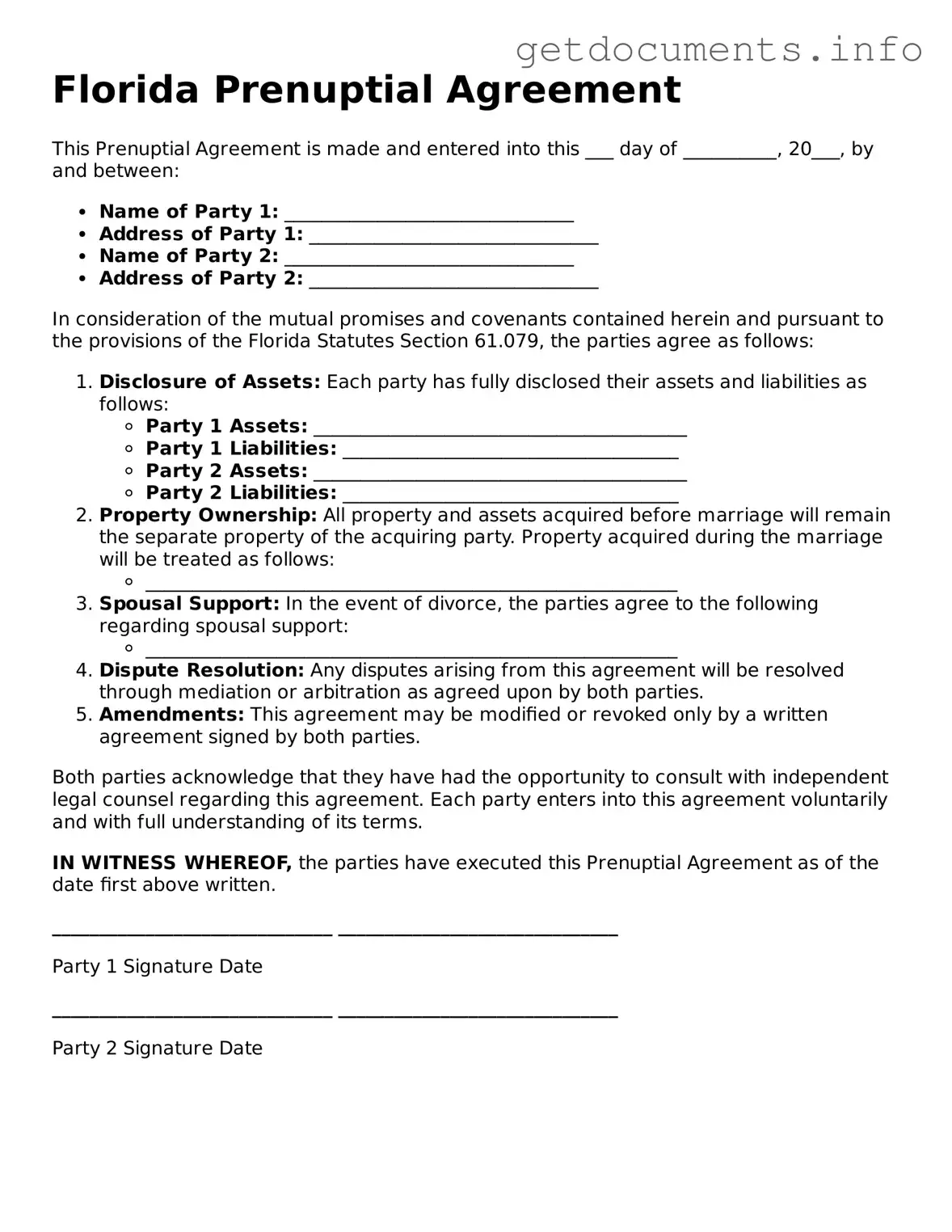Free Prenuptial Agreement Template for Florida
A Florida Prenuptial Agreement form is a legal document that outlines the financial rights and responsibilities of each spouse in the event of divorce or separation. This agreement can help protect individual assets and clarify financial arrangements before marriage. To get started on your own prenuptial agreement, fill out the form by clicking the button below.
Access Prenuptial Agreement Editor

Free Prenuptial Agreement Template for Florida
Access Prenuptial Agreement Editor
Got places to be? Complete the form fast
Fill out Prenuptial Agreement online and avoid printing or scanning.
Access Prenuptial Agreement Editor
or
⇩ PDF File
